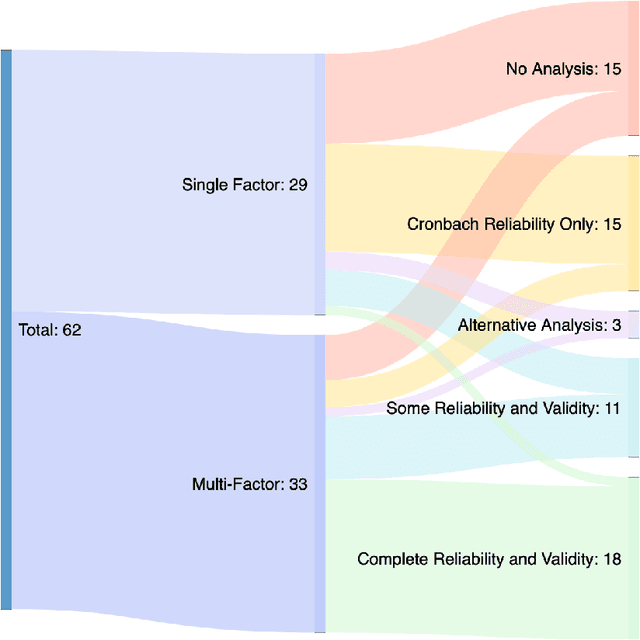Converging Measures and an Emergent Model: A Meta-Analysis of Human-Automation Trust Questionnaires
Paper and Code
Mar 24, 2023



A significant challenge to measuring human-automation trust is the amount of construct proliferation, models, and questionnaires with highly variable validation. However, all agree that trust is a crucial element of technological acceptance, continued usage, fluency, and teamwork. Herein, we synthesize a consensus model for trust in human-automation interaction by performing a meta-analysis of validated and reliable trust survey instruments. To accomplish this objective, this work identifies the most frequently cited and best-validated human-automation and human-robot trust questionnaires, as well as the most well-established factors, which form the dimensions and antecedents of such trust. To reduce both confusion and construct proliferation, we provide a detailed mapping of terminology between questionnaires. Furthermore, we perform a meta-analysis of the regression models that emerged from those experiments which used multi-factorial survey instruments. Based on this meta-analysis, we demonstrate a convergent experimentally validated model of human-automation trust. This convergent model establishes an integrated framework for future research. It identifies the current boundaries of trust measurement and where further investigation is necessary. We close by discussing choosing and designing an appropriate trust survey instrument. By comparing, mapping, and analyzing well-constructed trust survey instruments, a consensus structure of trust in human-automation interaction is identified. Doing so discloses a more complete basis for measuring trust emerges that is widely applicable. It integrates the academic idea of trust with the colloquial, common-sense one. Given the increasingly recognized importance of trust, especially in human-automation interaction, this work leaves us better positioned to understand and measure it.
 Add to Chrome
Add to Chrome Add to Firefox
Add to Firefox Add to Edge
Add to Edge